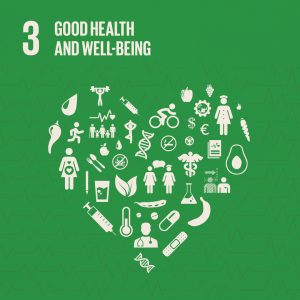Contributed by Markie Pasternak, Coordinator of Mental Well Being at Health Promotion and Wellness Services
The Compass
Here at Auburn University, we use a model to inform our ideas about sustainability called the ‘Sustainability Compass’. Just like on a navigational compass, there are four directions that can guide you towards living a more sustainable life. One of these directions is Individual Wellbeing, or wellness, meaning how you take care of yourself.
The Nine Dimensions of Wellness
What do you think of when you think the term “wellness”? Maybe it is how much you exercise? What you choose to eat? How you are feeling? Or even maybe how much sleep you get? Auburn’s Health Promotion and Wellness Services Office provides a guide for students, staff and faculty on living a life with a well-rounded definition of wellness. This model is called the Nine Dimensions of Wellness. Each dimension is a part of wellness that influences the other and requires special care and attention in order to sustain one’s own wellbeing.
-

Image courtesy of Graphic Design in Auburn Student Affairs.
Physical Wellness
- Emotional Wellness
- Intellectual Wellness
- Financial Wellness
- Social Wellness
- Occupational Wellness
- Environmental Wellness
- Cultural Wellness
- Spiritual Wellness
Zooming in on Emotional Wellness
Each dimension of wellness is an umbrella that houses a host of different ways to take care of yourself. This is especially true for emotional wellness. Under this dimension, we tend to throw around terms such as “mental health”, “mental illness”, and “mental wellbeing”. Sometimes these terms are used interchangeably, but what do they really mean?
Mental Health- refers to the overarching idea that our minds need to be taken care of just like our bodies do. Many times when people think of the word “health” it is assumed they are talking about physical health. ‘Mental health’ specifies the importance of maintain mental wellbeing and treating mental illness if necessary.
Mental Illness- refers to circumstances when there is a recognized disorder causing the person distress and disruption to everyday life that should be treated.
Mental Wellbeing- refers to our level of happiness and fulfillment in everyday life and how we take care of ourselves to sustain this level of satisfaction.
Mental Wellbeing at Auburn
In 2015, a task force was created consisting of students, staff and faculty to address mental health on Auburn’s campus. Gathering data using methods such as focus groups and surveys, the task force ultimately came up with recommendations on how to shift Auburn’s culture to not only be more accommodating and less stigmatizing towards those living with a mental illness but also to cultivate mental wellbeing. Using proactive approaches, Health Promotion and Wellness Services is developing new programs to address mental health and wellbeing on campus.
One action that was taken, specifically, was to hire a “Coordinator of Mental Well Being”, which is where I come into this story. Starting this past June, my job has been to coordinate programs at Auburn that promote mental wellbeing and even work to destigmatize mental illness.
Are you interested in getting involved with mental wellbeing initiatives on campus? Below are some opportunities for students, faculty and staff to all take part in this movement:
Active Minds
Active Minds is a student organization with the mission of “changing the conversation around mental health”. These are student leaders and activists seeking to destigmatize mental illness and start productive and positive conversations about mental health. All Auburn students are welcome to check out an Active Minds meeting every other Tuesday evening at 6:30 PM. The next meeting will be on October 2nd in Student Center Room 2107.
Question Persuade Refer Training
Question Persuade Refer or “QPR” is a method of suicide prevention that can be used when someone is thinking about harming themselves. This method takes a CPR approach to suicide prevention and asks people to be “gatekeepers” meaning they have the knowledge to ask the questions, persuade the person to pause and think about their actions, and refer them to the help and resources that they need. Health Promotion and Wellness Services offers QPR trainings to any groups of students, staff or faculty that request them. Please visit the Health Promotion and Wellness website if you are interested in scheduling a training!
Health Promotion and Wellness Services Presentations and Workshops
Health Promotion and Wellness Services offers a variety of presentations and workshops to be presented to students, faculty and staff. Topics that we cover include happiness and stress management, the nine dimensions of wellness, sleep, and so much more. If you are interested in having one of our office staff come to present to your organization, class or staff please visit our website to request a presentation.
Learn about the SDGs & AU and our contributions related to this post.






I want to thanks for your time for this wonderful Article!! I definitely enjoying every little bit of it and I have you bookmarked to check out new stuff you blog post.